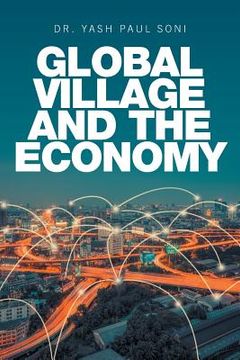Share
Global Village and the Economy (in English)
Yash Paul Soni
(Author)
·
Xlibris UK
· Paperback
Global Village and the Economy (in English) - Soni, Yash Paul
$ 16.14
$ 20.17
You save: $ 4.03
Choose the list to add your product or create one New List
✓ Product added successfully to the Wishlist.
Go to My WishlistsIt will be shipped from our warehouse between
Wednesday, July 03 and
Thursday, July 04.
You will receive it anywhere in United States between 1 and 3 business days after shipment.
Synopsis "Global Village and the Economy (in English)"
No, time has not ceased and space has not vanished, but life does seem to be moving rapidly that way. Telecommunications, satellites, computers, and fiber optics taken together are halving the cost of processing, storing, and transmitting information every eighteen months. The global village even has its own market square in the shape of the internet-a forum for commerce, information, entertainment, and personal interaction that makes previously undreamed of access to information available almost instantly and at extraordinarily low cost. Estimates suggest that 250 million people around the world use the internet already, with the number rising every day. Global Village is not only the internet and telecommunications, but it is also the more traditional fare of economists-trade in goods and trade in assets. The theoretical case for free trade is that it permits countries to concentrate on activities in which they enjoy comparative advantage and subjects firms to the healthy discipline of foreign competition. This means higher productivity and increased living standards while consumers enjoy access to a wider variety of goods and services at lower cost. This is true not only in theory, but it is true also in practice. Our post-World War II prosperity is based in large part on the rapid expansion of international trade in goods and services, which year after year has grown more rapidly than production. The theoretical argument for the free movement of capital is essentially the same as the argument for free trade in goods: Money can be channeled to its most profitable uses worldwide, financing productive investment opportunities even where domestic savings are scarce. However, the recent crises have made that a more controversial proposition. Scholars argue that academic publications promote myths like "Globalization leads to one healthy world culture," "Globalization brings prosperity to person and planet," or "Global markets spread naturally." They argue that globalization ideals represent primarily Westernized perspectives. They further assert that management educators have given little thought to the fact that not everyone wants to be a member of a global village. These experts argue that it is important for scholars and citizens to balance unbridled enthusiasm for capitalism with evidence of its results. They call for an open and egalitarian dialogue among those who promote globalization and those who believe it has negative consequences.
- 0% (0)
- 0% (0)
- 0% (0)
- 0% (0)
- 0% (0)
All books in our catalog are Original.
The book is written in English.
The binding of this edition is Paperback.
✓ Producto agregado correctamente al carro, Ir a Pagar.

